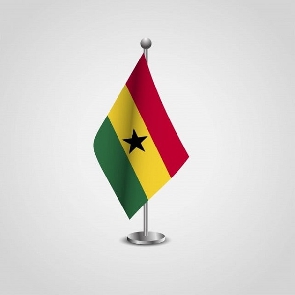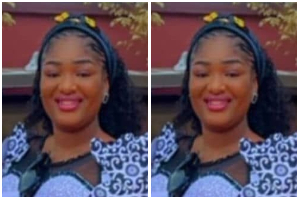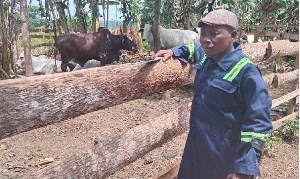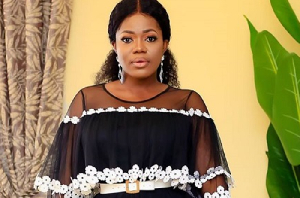There are clearly independent institutions and perceived neutral bodies watching and monitoring the development and growth of Ghana's democracy.
These institutions, include the Electoral Commission (EC) of Ghana. The commission is supposed to be independent in the conduct of its constitutional mandate in organizing national elections
Article 46 of the 1992 constitution provides that” in the performance of its functions, the Electoral Commission shall not be subject to the control or direction of any authority” except as provided in the constitution or any other law not inconsistent with the constitution.
The Chairman and the two Deputy Chairmen have permanent tenure of office and enjoy the same conditions of service as justices of the Superior Courts.
The Electoral Commission has the power to appoint its officers and other employees by acting in consultation with the Public Service Commission.
The administrative expenses of the Electoral Commission, including salaries, allowances and pensions are chargeable to the Consolidated Fund.
Electoral Landscape
The Chairman of the EC, and the two deputies, as well as all other regional and district officers of the commission are supposed to perform their functions at the atonal and local levels in the conduct of elections without fear or favor.
Consequently, the integrity of the electoral process in Ghana since 1992, has been hinged on the credibility and integrity of personnel working with the commission.
Unfortunately, since the exit of Dr. Africa Gyan, the image of the commission appears to have suffered.
It has been severely battered and butchered in the public space. All the two Chairpersons, Charlotte Osei and Jean Mensah, appointed after the retirement of Dr. Afari Gyan, have not only been accused of being biased in the conduct of the elections in the country, but have been painted with the dirty brushes of the two leading political parties in the country, National Democratic Congress (NDC) and New Patriotic Party (NPP).
The negative development of this partisanship introduced the rejection of the outcome of elections and the first two Supreme Court cases of 2012 and 2020 after the general elections respectively.
Although the dust has always settled following the declaration of the Supreme Court verdict, many Ghanaians still believe that until the commission purges itself of this credibility crisis, future elections could be hit with serious challenges, and the democratic credentials of the country been dragged into the mud.
The Media Landscape
The introduction of democratic environment in Ghana since 1992 has provided a fertile ground for media freedom, development of the media landscape.
The freedom, afforded the country an opportunity to widen the media space with proliferation of media houses ranging from traditional media such as print and electronic. Again, the introduction of new media through online websites to blogging among others.
The Ghanaian Constitution, in Chapter 12, protects both freedoms of expression and of the media. The freedoms stipulated, amongst others, include the prohibition of censorship, the freedom to establish private media, insulation of the media from the government’s control or interference, editorial freedom by the media, and independence of the state (public) media institutions.
The role of the media in positioning the country's democracy under the circumstance, can not be underestimated following significant gains made in the area of information management, entertainment, and education.
Unfortunately, the watchdog role of the media seems to have dipped as many concerned Ghanaians continue to question the lack of commitment on the part of journalists to hold political parties and political players accountable as they discharge their mandate as duty bearers.
In the course of critiquing the work of journalists and media houses, some popular media practitioners have been accused of bending the ethics of the profession to do unprofessional things against the interest of the country.
In fact, issues of partisanship, corruption, favoritism, lack of Professionalism and indecent language in the media space have been heaped on journalists. Here, the issue of integrity, credibility cannot be justified.
Academic Landscape
Professors and lecturers shoulding our universities in academic affairs are ranked high. They are revered for building the capacity of post-secondary scholars, reforming and transforming education, and conducting research as heads of research institutions in most countries.
Literally, the professor derived from Latin as a "person who professes. Therefore, Professors are usually experts in their field and teachers of the highest rank, hence the respect citizens accord them.
Unfortunately, true partisan inclination in Ghana has clouded the sense of judgment of most of these professors manning the institutions of our country according to a section of the Ghanaian public.
Although as academicians, these tutors have been noted for their expertise, experience, and exceptional support to teaching and learning, their views on matters of national interest have occasionally been questioned by electorates especially during electioneering period following their expression of biases, unguarded comments, and abuse of authority in conducting research programs to favor political parties they usually associate themselves with.
This deteriorating development has divided the academic front, and successfully nullified the neutrality or otherwise independence of the academic environment.
Security Landscape
The amplifying nexus existing between security and development in Ghana cannot be over-emphasized, or underestimated considering that
human security is essential and an important objective of development, and therefore its absence has negative
consequences for development.
As a consequence of the general lack of security, a majority of citizens in many developing states have resorted to self-help in security provision by using the private, non-state sector to address their security needs. Given the correlation between security and development, it is pertinent and vital to examine the contribution of all actors to security in a state, particularly in the developing world such as Ghana.
While various attempts have been made in Ghana to improve upon security provision, these have largely been focused on donor-led and driven security sector reforms targeted mainly at state security actors, namely the police and law enforcement agencies, armed forces.
In Ghana today, state security provision has largely been inadequate, focusing mainly on state preservation against external aggression and internal disorder using mainly the military and police, respectively.
These are done with the active support of the intelligence agencies. This is the so-called hard security, which also mainly provides protection to regimes and the elites. Hard security in Ghana has largely been responsible for the neglect of the physical and other socio-economic needs (human security) of a majority of citizens. The concept of security adopted has often been misinterpreted even by citizens themselves.
To make matters complicated, the very security operatives who have been mandated by law as contained in the constitution (1992).
The State shall endeavour to secure and protect a social order founded on the ideals and principles of freedom, equality, justice, probity, and accountability as enshrined in Chapter 5 of the constitution (1992)
Sadly, most of the security captains are being accused of being bias. The party in government is constantly perceived as the subtle remote, surreptitiously controlling how security issues must be handled in the country. This has largely affected the political environment, especially during the period of political campaigning.
The two major political parties NPP-NDC have all been guilty of playing host to this security gymnastics, therefore jeopardizing the neutrality of the security forces in handling matters of security as the backbone of pure democratic system of government.
Religious Landscape
Men of God are noted for being the representatives of the Almighty God, creator of the universe. They are supposed by divine to remain fair, morally upright, faithful, and firm to their calling in serving God.
They play the role of pious neutrality with demonstration of purity in the discharge of parity on earth, therefore they are expected to live above reproach and treat people of all kind with respect and adoration.
In Ghana, many of these Religious leaders have demonstrated with courage all these qualities outlined, but there are few who have also been accused of throwing mud at the calling with partisanship.
They associate themselves with political parties for favor in government and in the process, dimming the light of neutrality although at the blind of many, but not everyone.
There have been occasions these men of God have been attacked by politicians for playing these unhealthy roles during political campaigning.
Creative Arts Landscape
Ghana, as a country has the potential to develop a thriving, dynamic creative arts industry. From music, to fashion, theatre, architecture, and the visual arts and design, the potential for the average Ghanaian is unquestionable.
Many who play diverse roles in the industry, turn to contribute their quota irrespective of the size to national development. Information, education, and entertainment are the three cardinal pillars of the creative arts industry. The role of players cannot, therefore, be discounted in measuring the growth of the country in terms of development.
The players are often viewed conventionally by citizens as neutrals whose activities require holistic national support and not a section of the public depending on one's talent and how the talent is being utilized under the circumstance.
Regrettably, many of these industry players have decided to associate their brands with political parties, therefore injuring the purity of their neutrality. Many who have joined political rallies and endorsement of political parties have had their brands soiled and the backslash from citizens extremely telling in the turn out of events after the cycle of political activism.
Opinions of Wednesday, 5 May 2021
Columnist: Zambaga Rufai















